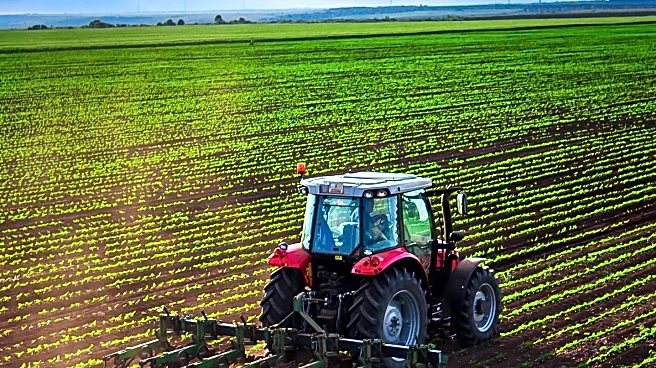What's Happening?
EU-funded researchers are collaborating across countries to enhance organic farming practices and policies, aiming to achieve 25% organic farmland in Europe by 2030. Despite organic food becoming mainstream, only 11% of EU farmland is currently organic. The OrganicTargets4EU project, involving researchers, farmers, and policy experts, is identifying barriers and testing solutions to support the organic sector. The initiative includes workshops and research collaborations to provide farmers with the necessary tools and confidence to convert to organic farming.
Why It's Important?
The push for increased organic farming is part of a broader effort to transform agriculture in Europe, promoting sustainability and biodiversity. Achieving the 25% target could significantly reduce environmental impact and enhance food security. However, farmers face challenges such as adapting to new standards, market uncertainties, and increased labor demands. Successful implementation of organic practices could lead to a more resilient agricultural sector and influence global food production trends.
What's Next?
The OrganicTargets4EU team is developing policy recommendations to be presented to the European Commission in late 2025. The project is also exploring scenarios for organic aquaculture growth, addressing barriers such as costs and bureaucracy. The final conference in November 2025 will coincide with debates on the EU Organic Action Plan, potentially shaping future agricultural policies.
Beyond the Headlines
The initiative highlights the importance of collaboration and innovation in achieving agricultural transformation. By strengthening cross-border research and policy links, the project aims to create a lasting legacy for organic farming in Europe. The focus on retention and support for existing organic farmers is crucial to maintaining progress and preventing reversion to conventional methods.








